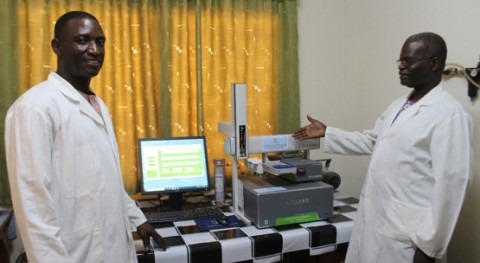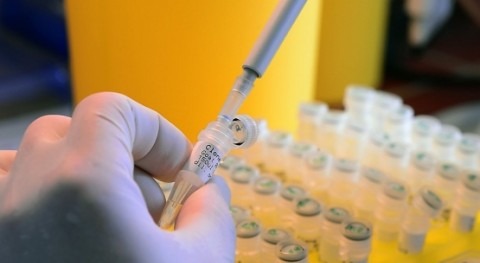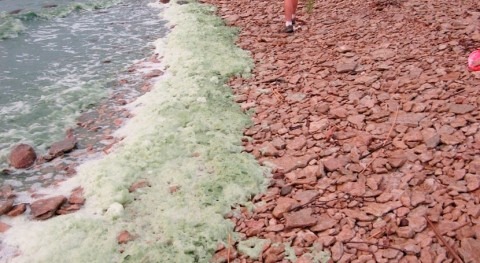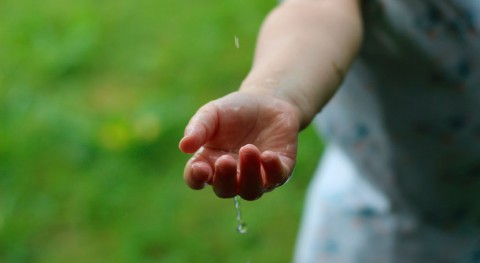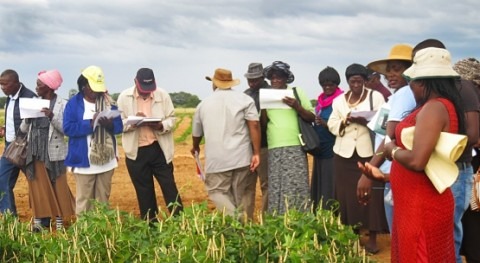Changes in the world’s weather patterns are having serious impacts on lives and livelihoods across the globe. In the summer of 2022, some of the world’s mightiest rivers, such as the Colorado, Loire, Po, Rhine and Yangtze, saw significant drops in water levels, in some areas shrinking to thin trickles as a result of severe climate-driven droughts. In other parts of the world, intense flooding has affected millions of lives and livelihoods.
At an event, 'Water Security in a Changing World,’ held alongside the IAEA’s annual General Conference, experts from fields as diverse as isotope hydrology, biochemistry and environmental law gathered to discuss the issues of water security and how nuclear sciences can be used to make informed decisions by water managers on preserving this valuable resource against the backdrop of climate change. The event was organised jointly by the IAEA and the United Nations Educational, Scientific and Cultural Organization (UNESCO).
“We are experiencing worldwide changes in the distribution of water caused by climate change,” said Najat Mokhtar, IAEA Deputy Director General and Head of the Department of Nuclear Sciences and Applications, at the opening of the event. “Our success in managing these shifts will largely rely on the tools at our disposal, such as various nuclear techniques, to track and understand the movement of water,” she added.
About 70 per cent of the Earth's surface is covered with water, however, only 2.5 per cent of that is fresh, and because much of it is frozen in glaciers or buried underground, only one per cent is available for drinking, bathing or irrigating agricultural fields. Discussing ways of strengthening water security globally, the participants focused on how nuclear and isotopic techniques can help in understanding the impact of climate change and human activities on water availability and sustainability. These include the use of a range of isotope tracers to understand how water moves through the different stages of the water cycle and which components of this cycle are most at risk from climate change.
Water scarcity — its lack due to physical shortages or the inability of institutions to adequately provide it — now affects every continent
One such important component is groundwater, an important source of freshwater to mitigate the impact of evaporative losses of surface water as the temperature of the Earth’s surface increases. Participants discussed studying — through isotopic methods — the availability of groundwater, its quality and sustainability, as well as its connection to important ecosystems such as rivers and coastal environments.
“To address the escalating problem of deteriorating water quality worldwide, we need to accommodate for varying levels of treatment centralization, to match water quality to intended use, and to explicitly include governance aspects of technology implementation,” said Janet Hering, the Director of Eawag, Swiss Federal Institute of Aquatic Science and Technology, who signed a Practical Arrangement with the IAEA at the General Conference on improving spatial mapping of water quality and improved understanding of the timescales of pollution transport.
Water scarcity — its lack due to physical shortages or the inability of institutions to adequately provide it — now affects every continent. According to a recent report, 2 billion people, or 26 per cent of the world’s population, lack safe drinking water and 3.6 billion people, or 46 per cent, lack adequate sanitation. At the current rate of consumption, water scarcity is expected to worsen as global temperatures continue to rise and the population continues to grow. UNICEF reports that as early as 2025, half of the world's population could be living in water-stressed areas.
“Water security is a core issue facing all countries,” said Jodie Miller, Head of the Isotope Hydrology Section in IAEA’s Department of Nuclear Sciences and Applications. “The question of how to save water and maintain water quality is a top priority for the international community, and nuclear science contributes to unlocking the answers to it."




